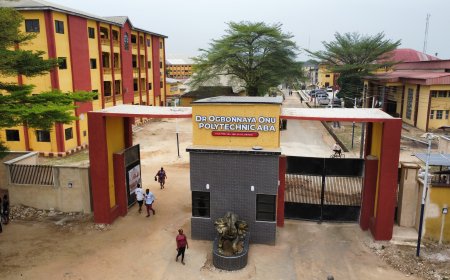Abia State to Prosecute Parents Who Fail to Send Children to School Starting January 2025

The Abia State government has announced that it will become an offence for parents not to send their children to school, effective January 1, 2025. The announcement was made by the state’s Commissioner for Information, Okey Kanu, following the State Executive Council meeting on Monday at the Government House in Umuahia.
Kanu emphasized that the move is part of ongoing reforms in the state's education sector and that the issue of poverty will no longer be a valid excuse for not sending children to school. Under the new policy, education remains free for students up to the end of Junior Secondary School in Abia State. Kanu urged parents to take advantage of the state’s tuition-free education policy, stating that there is no excuse for non-compliance.
“The Abia State Child’s Law 2006 will be fully enforced, and as of January 1, 2025, any parent who fails to send their child to school will be prosecuted,” Kanu said. The law mandates that children of school age receive basic education, and the new regulation aims to ensure that all children in Abia State have access to free education.
In addition to the education reform, Kanu also addressed other key state issues. He confirmed that the controversial relocation of the Umuahia campus of Abia State University to its mother campus in Uturu remains final. He reassured stakeholders that concerns regarding the move would be addressed.
Kanu also highlighted the Governor’s directive to urgently repair the Osisioma flyover, which has been in poor condition since its construction by the previous administration. The Governor has instructed the Commissioner for Works to prioritize its repair to ensure public safety.
The Abia State government is pushing for significant improvements in both education and infrastructure, signaling a commitment to better the living conditions of its residents.





















































